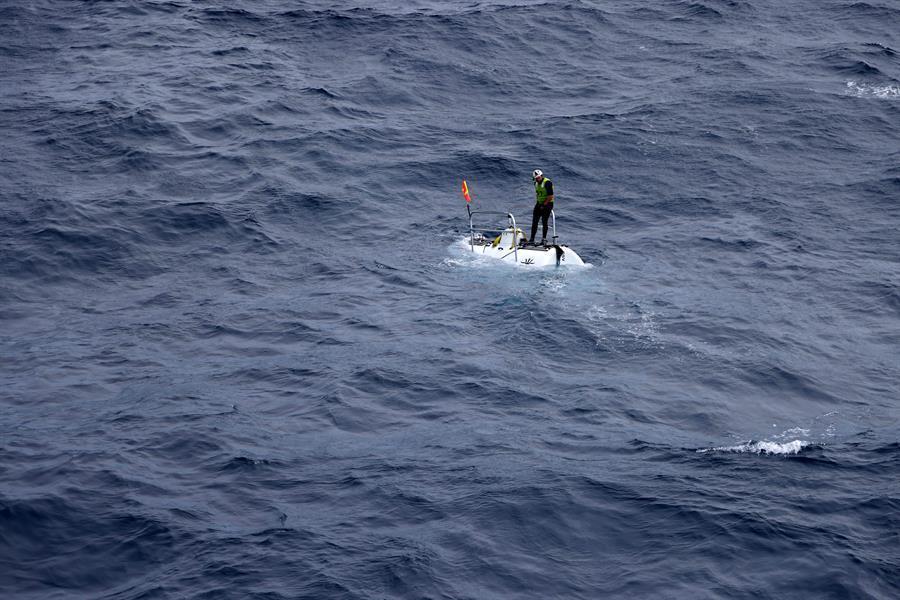
When Chilean scientist Osvaldo Ulloa led an expedition 8,000 meters under the sea to an area where no human had ever been, his team discovered microscopic organisms that generated more questions than answers.
The January submarine expedition dove into the Atacama Trench, created by the meeting of two tectonic plates in the eastern Pacific Ocean.
“We pulled off the feat of taking humans into the trench where no other human being had been before,” Ulloa, the director of the Millennium Institute of Oceanography at the University of Concepcion, told AFP.
He was joined by American explorer Victor Vescovo and Millennium assistant director Ruben Escribano on the 12-week journey off Chile’s northern coast in the 5,900-kilometer long trench that extends up to Ecuador.
By the time the expedition, named Atacama Hadal, reached a depth of 100 meters it was already in pitch black darkness, with the crew members’ vision limited to what the submarine’s powerful LED light could capture.
Further down out of the darkness emerged remarkable examples of deep sea life.
“We came across geological structures and there we saw a type of holothurians or translucent sea cucumbers, like jelly, that we had not recorded and were most probably new species,” said Ulloa.
“We also discovered bacterial communities that had filaments that we did not even know existed in the Atacama Trench and which feed on chemical and inorganic compounds.
“That opened up a huge number of questions: What are those compounds? What type of bacteria are they? We have no idea, we’re going to have to go back there.”
The expedition also found species of amphipods, a type of crustacean closely related to shrimp, which were scavenging crustaceans, segmented worms and translucent fish. They were discovered in the same place in an unmanned expedition in 2018.